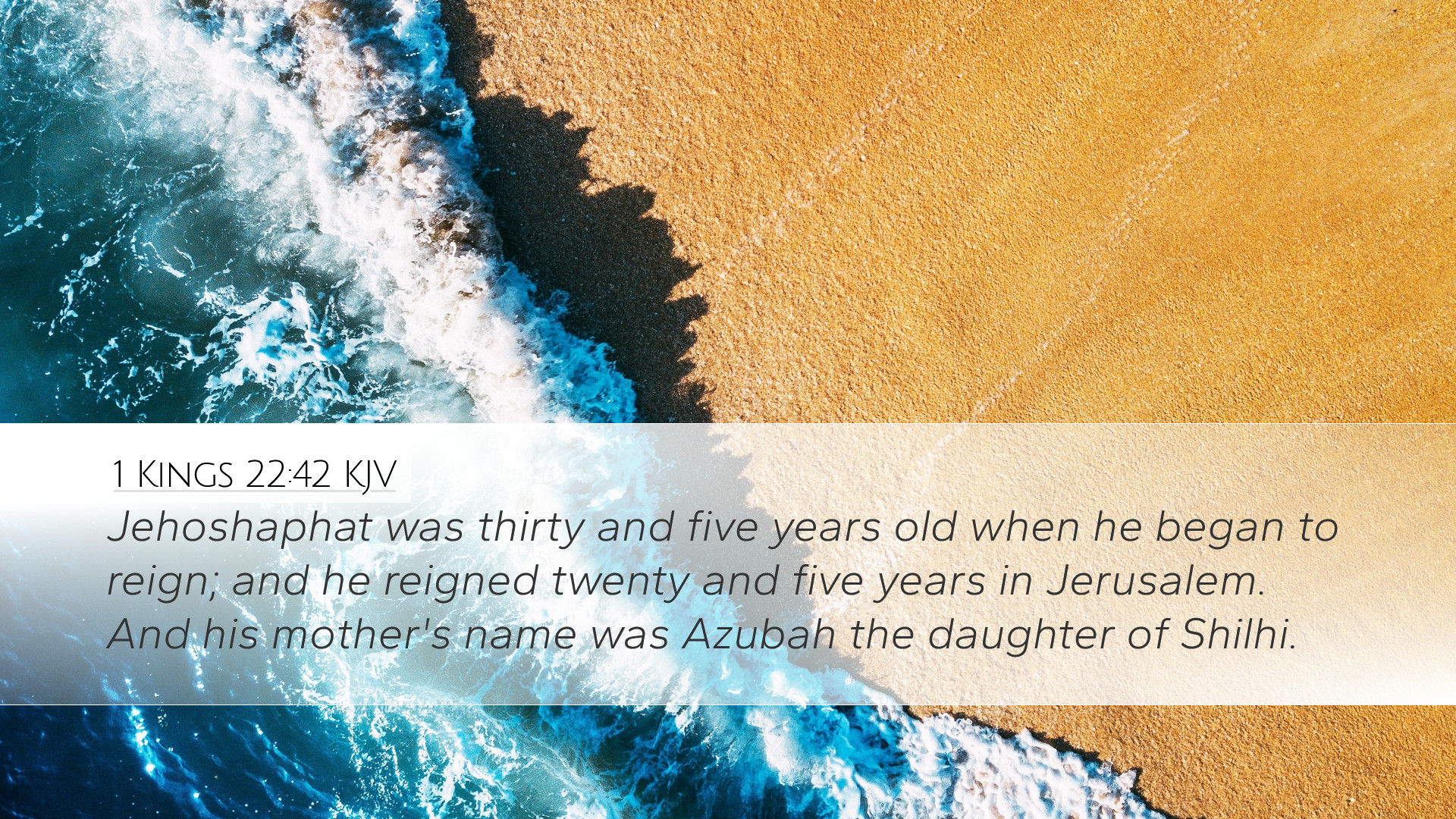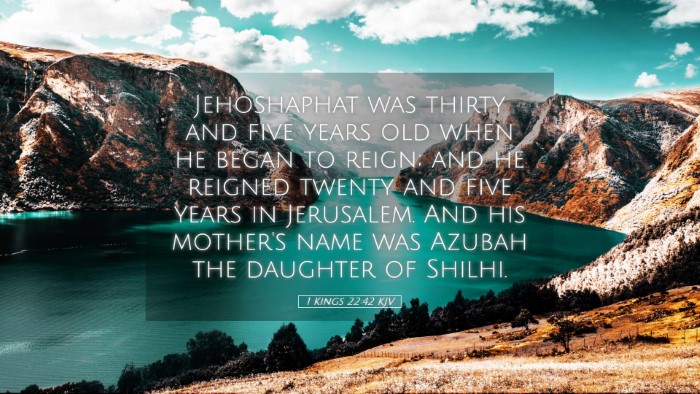Commentary on 1 Kings 22:42
Introduction
The verse 1 Kings 22:42 presents a brief yet significant insight into the reign of King Jehoshaphat of Judah, highlighting aspects of his character and leadership during a tumultuous period in Israel’s history. The passage states: “Jehoshaphat was thirty-five years old when he began to reign; and he reigned twenty and five years in Jerusalem. And his mother’s name was Azubah the daughter of Shilhi.” This commentary combines the insights from public domain commentaries to provide a multifaceted understanding of this verse.
Historical Context
The backdrop of 1 Kings 22 is essential for understanding the significance of Jehoshaphat's reign. Jehoshaphat ascended to the throne during a time marked by political intrigue and the ongoing conflict between Israel and its adversaries. His reign lasted for 25 years—from approximately 872 to 847 BC. This period in the history of Judah and Israel was characterized by numerous alliances, wars, and prophetic interventions.
Jehoshaphat's Character
Jehoshaphat's character is pivotal in this passage. Both Matthew Henry and Albert Barnes emphasize his attempt to follow the ways of his ancestor David, which set a precedent for his leadership style.
- Commitment to God: Jehoshaphat is recognized for his dedication to the worship of Yahweh. His policies aimed at abolishing high places and turning the people's hearts back to God are noteworthy.
- His Mother: Azubah: The mention of his mother’s name, Azubah, emphasizes the influence of familial lineage in his rule. Some scholars, including Adam Clarke, suggest that the names and backgrounds of rulers often indicate aspects of their reign and spiritual lineage.
Leadership Qualities
The reign of Jehoshaphat illustrates leadership that combines personal devotion with public duty. His age at ascension—35—is significant, as it indicates a maturity that likely contributed to his decision-making. Matthew Henry notes that Jehoshaphat’s early years in leadership displayed wisdom and prudence.
- Justice and Righteous Rule: Jehoshaphat is commended for instituting judges and ensuring justice in the land, indicative of a leader who prioritized righteous governance.
- Seeking Counsel: His alliance with Ahab, albeit controversial, displays a calculated approach to diplomacy, showcasing his willingness to seek counsel from other leaders while remaining aware of the prophetic voice.
Theological Implications
Several theological implications arise from this verse, primarily concerning God’s sovereignty and human leadership. Jehoshaphat’s reign, characterized by both successes and failures, reflects the overarching theme of providence in the Old Testament narrative.
- Divine Sovereignty: The reign of Jehoshaphat serves as a reminder that while human kings rule, God is ultimately sovereign over history. Jehoshaphat's reliance on God in times of crisis, such as during the Moabite invasion, is noted in subsequent passages.
- Human Responsibility: The passage challenges leaders today to seek God’s will, to lead righteously, and to align their governance with divine principles.
Conclusion
In summary, 1 Kings 22:42 reveals critical insights into the life of King Jehoshaphat, marking him as a ruler who endeavored to align his reign with the divine will while facing the complexities of leadership in a divided kingdom. Through studying such passages, scholars and theologians can derive essential lessons on leadership, faithfulness, and the interplay between divine sovereignty and human decision-making.


